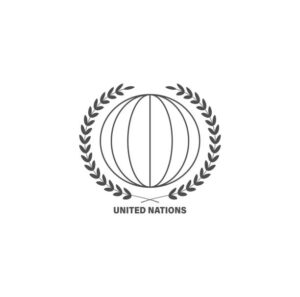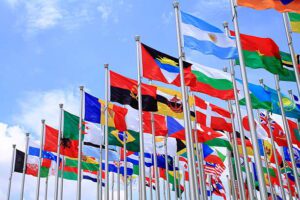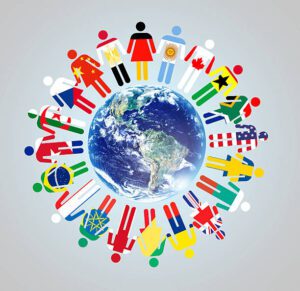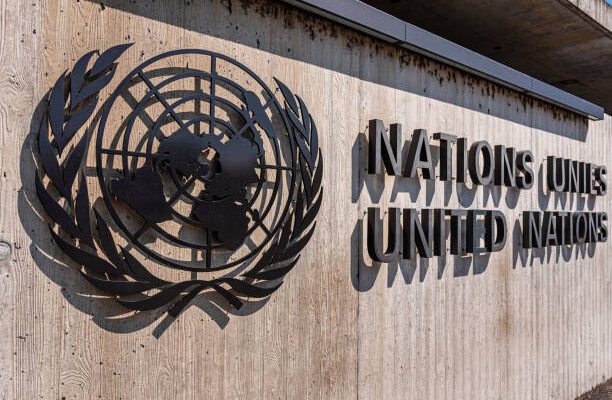The United Nations is a global organization created to facilitate for nations throughout the world. The enforcement of international law, security, and human rights as well as economic development and social advancement. 193 nations are members of the UN, and there are also two non-voting permanent observers. Its main office is located in New York City.
Some important points about UN are written below:
History and principles of UN
 (Photo from istock)
(Photo from istock)
The League of Nations served as the international body in charge of ensuring world peace and cooperation before the United Nations (UN). To “promote international cooperation and to achieve peace and security”. It was established in 1919. The League of Nations was successful when it had 58 members at its peak. Its popularity declined in the 1930s as the Axis Powers (Germany, Italy, and Japan) rose to power. Finally precipitating the outbreak of World War II in 1939.
Winston Churchill and Franklin D. Roosevelt then used the phrase “United Nations” in the UN Declaration in 1942. This statement was made to formally acknowledge the Union of Soviet Socialist Republics, Great Britain, and the United States as Allies during World War II.
However, the UN as we know it today was not formally established until 1945, when the San Francisco, California-based UN Conference on International Organization produced the first draught of the UN Charter. Participants in the summit, including ambassadors from 50 different countries and various non-governmental organizations, all signed the charter. The UN’s charter was ratified, and on October 24, 1945, the UN became a legally recognized organization.
Organization of united nations
The UN is currently divided into five branches in order to effectively tackle the challenging task of enlisting the cooperation of its member states. The UN General Assembly comes first. Through its policies and recommendations, its principal decision-making and representative assembly is in charge of maintaining the UN’s founding ideals. It meets every year from September to December, is made up of all member states, and is presided over by a president chosen by the member states.
Another arm of the UN is its most powerful body, the Security Council. It can sanction the deployment of military forces from UN member states, order a cease-fire during hostilities. And impose sanctions on nations which disobey orders. Ten rotating members and five permanent members make up the group.
The UN’s next division is the International Court of Justice, which is located in The Hague, Netherlands. The General Assembly then receives help from the Economic and Social Council in promoting social and economic development as well as member state cooperation. To summarize, the Secretariat is the division under the Secretary-General’s leadership. Its main responsibility is to provide other UN branches with studies, data, and other resources when they need them for conferences.
Membership of united nations
 (Photo from istock)
(Photo from istock)
Nearly all independent states in the world today are UN members. In order to join the UN, a state must accept peace as well as all of the charter’s commitments. And be prepared to take any necessary steps to uphold them. After the Security Council makes a recommendation, the General Assembly makes the final decision regarding admission to the UN.
Functions of United Nations
Today, as in the past, the UN’s primary duty is to uphold international peace and security for all of its member states. The UN has peacekeeping forces that are funded by its member states, despite the fact that it does not maintain its own military. These peacekeepers, for instance, are dispatched to areas where armed conflict has recently ended to deter combatants from renewing hostilities with the UN Security Council’s approval. The peacekeeping force was awarded the Nobel Peace Prize in 1988 for its efforts.
The UN seeks to uphold peace while also defending human rights and offering aid to those in need. The Universal Declaration of Human Rights was adopted by the General Assembly as the benchmark for its human rights initiatives in 1948. Currently, the UN offers technical support for elections, aids in the improvement of judicial systems, draughts constitutions, educates human rights authorities, and provides food, water, shelter, and other humanitarian services to people who have been displaced by famine, conflict, and natural disasters.
Last but not least, the UN’s UN growth Program significantly contributes to social and economic growth. This is the world’s biggest source of technical grant aid. The UN Population Fund, the World Health Organization, UNAIDS, The Global Fund to Fight AIDS, Tuberculosis, and Malaria, to name a few, and the World Bank Group all play crucial roles in this area. The parent company also releases the Human Development Index every year to place nations according to their levels of poverty, illiteracy, education, and life expectancy.
Maintenance of peace and security
 (Photo from istock)
(Photo from istock)
The major responsibility of the UN is to maintain international peace and security. Chapter 6 of the Charter, as implemented by the Security Council. Advocates for the peaceful settlement of disputes through methods such as negotiation, mediation, arbitration, and judicial decisions. The Security Council is empowered to investigate any conflict or situation to determine whether it endangers global peace and security. If the parties are unable to resolve the problem amicably, the council may also offer terms of settlement. The council may make suitable methods or strategies of adjustment at any stage of the conflict.
UN and Millennium Development Goals
The UN created what it called the Millennium Development Goals at the turn of the century. The majority of its member nations and other international organizations concurred that by 2015, targets should be set for lowering poverty and child mortality, combating diseases and epidemics, and creating an international development partnership on a global scale.
In addition to praising efforts made in developing countries, a report released as the deadline drew nearer noted the shortcomings. That require continued attention, including those who continue to live in poverty. Without access to services, gender inequality, the wealth gap, and the effects of climate change on the world’s poorest people.
References:
Thought.Co
Thinking about why we need Political Parties, click on the link below:
Why do we need Political Parties


2 Comments on “What are the main functions of the UN?”